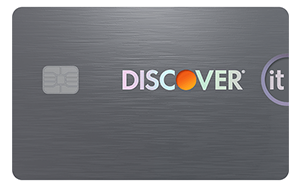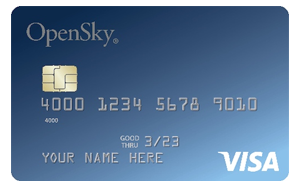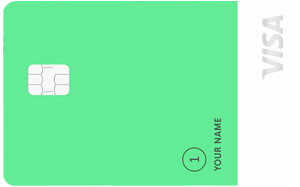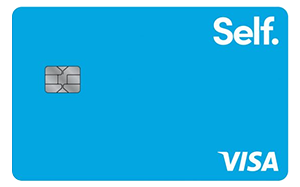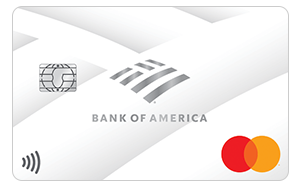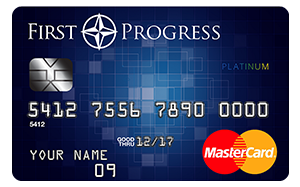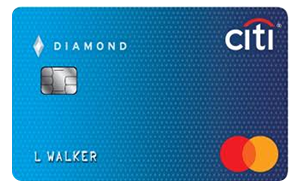Table of Contents
How does getting a new credit card hurt your credit?
Getting a new credit card can hurt your credit (temporarily) because the very act of requesting credit makes you look riskier in the eyes of lenders. That might seem unfair or counterintuitive, but here’s why your credit score might decrease immediately after you open a new credit card.
Applying for a new credit card adds a hard inquiry to your credit report
When you apply for a new line of credit such as a credit card, your creditor checks your credit report, which triggers a hard inquiry. This type of inquiry, also known as a “hard credit pull” or “hard credit check,” stays on your credit report for two years. 1
It doesn’t matter if your credit card application is denied or you change your mind and decide not to accept the credit card; your credit score will still be affected when you apply.
How much does a hard inquiry hurt your score?
In general, the effect of a single hard inquiry will be fairly small. FICO has stated that typically, hard inquiries lower your score by five points or less.2
The effect will diminish over time and will be negligible after a few months. Your score will fully recover within six months (in VantageScore’s model) or a year (in FICO’s).3 1
Minimize the number of hard inquiries on your credit report
You’ll get a new hard inquiry each time you apply for a credit card, and your score will drop each time. To minimize the effects of having too many hard inquiries, space out your credit card applications and only apply when you need it.
Opening a new credit card lowers the average age of your accounts
If you apply for a credit card and get approved, your credit score will take another temporary hit. This is because the length of your credit history—which is calculated based on the ages of your oldest and newest accounts and the average age of all your accounts—contributes to your credit score. It makes up 15% of your score in FICO’s model.4
Old accounts you’ve had for many years help your credit score. Conversely, every new account you open temporarily hurts your credit score. The good news is that your score will recover as your new account ages.
How does adding a credit card improve your credit score?
If you manage it well, a new credit card can eventually improve your credit score through positive effects on your credit utilization rate, credit mix, and payment history. These three factors contribute to your credit score to varying degrees and can improve it for the following reasons.
Your credit utilization rate may decrease
Getting a new credit card usually increases the amount of credit you have access to, which boosts your score by reducing your credit utilization rate (the proportion of your available revolving credit that you use).
Your credit utilization significantly contributes to your score in both scoring models:
- FICO: Credit utilization is one of the five components of the Amounts Owed category, which altogether accounts for 30% of your FICO credit score.
- VantageScore: Credit utilization accounts for 20% of your VantageScore credit score.
You can calculate your credit utilization rate by dividing your outstanding balance by your credit limit.5 Credit scoring models take into account both your overall credit utilization rate and the credit utilization rate for each of your accounts.6 In general, you should try to keep your credit utilization rate below 10% if possible and never let it reach 30%.
Opening more credit cards increases the amount of available credit you have, which in turn lowers your credit utilization rate and improves your credit score.
Your credit mix may improve
The major credit scoring models reward you for having both revolving credit and installment loans. The variety of credit that you have is called your credit mix, and it accounts for roughly 10% of your credit score in both models.
For a healthy credit mix, you need a balance of the following types of credit.
- Installment credit: Also known as installment loans, this includes mortgages, student loans, home equity loans, and car loans. Installment loans enable you to borrow a set amount of money from a lender in one lump sum. You then usually follow a fixed repayment schedule until the entire balance has been paid off.
- Revolving credit: Credit cards and home equity lines of credit (HELOCs) are examples of revolving credit. For revolving accounts, your lender sets the credit limit. The amount you borrow is flexible, and you usually need to make a minimum payment each month (either a fixed amount or a percentage of your balance).
If you don’t have a revolving credit account, then adding a new credit card can give your credit score a boost by improving your credit mix.
Your on-time payment history may improve
Your payment history is the record of late and on-time payments you’ve made for each of your credit accounts. It’s the most important credit score factor, accounting for 35% of your FICO score and either 40% or 41% of your VantageScore credit score (depending on the version).
If you have a longer history of using credit responsibly, your credit score will be higher. Getting a new credit card and paying your bills on time will strengthen your payment history.
Make sure that you don’t fall behind on your payments, though, as this will harm your credit score. If you do miss a payment, make it up as soon as possible. Creditors don’t usually report late payments until they’re 30 days overdue, but the later the payment becomes, the more it will damage your score.7
How much does a new credit card affect your credit score?
Opening a new credit card might initially reduce your credit score by several points. The exact number of points depends on various factors, such as the length of your credit history and the number of accounts you have.8 For example, opening new accounts typically has a greater effect on people with thin or new credit profiles (i.e., people with short credit histories or people opening their first lines of credit).9
As long as you’re careful about managing your credit, there’s no need to worry. The negative effects of opening a new credit card will be short-lived if you use the card responsibly. Specifically, your credit score should improve within a few months as the hard inquiry loses its effect and the account begins to age and positively contribute to your credit history.
| Credit Card | Best For | Credit Score | Annual Fee | Welcome Bonus | |
|---|---|---|---|---|---|
| Bad Credit Overall | 300–669 | $0 | Cashback Match | ||
| Secured | 300–669 | $0 | |||
| Unsecured (No Deposit) | 300–669 | $0 | |||
| No Interest | 300–669 | $0 | |||
| No Credit Check | 300–669 | $35 | |||
| No Fees | 300–669 | $0 | |||
| High Credit Limit | 300–669 | $39 ($0 for the first year if you set up autopay) | |||
| Rewards | 300–669 | $0 | |||
| Building Credit | 580–739 | $0 | |||
| Credit Card | Best For | Credit Score | Annual Fee | Welcome Bonus | |
|---|---|---|---|---|---|
| Secured Overall | 300–669 | $0 | Cashback Match | ||
| No Credit Check | 300–669 | $35 | |||
| Beginners | 300–669 | $25 | |||
| No Annual Fee | 300–669 | $0 | |||
| Bad Credit | 300–669 | $49 | |||
| Rebuilding Credit | 300–669 | $0 | |||
| Credit Card | Best For | Credit Score | Annual Fee | Welcome Bonus | |
|---|---|---|---|---|---|
| Secured | 300–669 | $0 | Cashback Match | ||
| Unsecured (No Deposit) | 300–669 | $39 ($0 for the first year if you set up autopay) | |||
| Beginners | 300–669 | $49 | |||
| Students | 580–739 | $0 | Cashback match | ||
| No Annual Fee | 300–669 | $0 | |||
| High Approval Odds | 300–669 | $35 | |||
| Building Credit | 300–669 | $0 | |||
| Credit Card | Best For | Credit Score | Annual Fee | Welcome Bonus | |
|---|---|---|---|---|---|
| No Credit Overall | 300–669 | $0 | Cashback Match | ||
| Starters | 300–669 | $49 | |||
| Students | 580–739 | $0 | Cashback match | ||
| No Credit Check | 300–669 | $35 | |||
| No Annual Fee | 300–669 | $0 | |||
| Unsecured (No Deposit) | 300–669 | $75 for the first year ($48 after) | |||
| High Credit Limit | 300–669 | $39 ($0 for the first year if you set up autopay) | |||
| Instant Approval | 300–669 | $75–$99 the first year, then $99 annually | |||
| Beginners | 300–669 | $0 | |||
Is it bad to have multiple credit cards?
No, having multiple credit cards isn’t bad if you use them responsibly and avoid making late payments. According to FICO’s president, Ethan Dornhelm, people with good credit scores have an average of three open credit cards. However, how many credit cards you should have depends on your credit history and personal circumstances.
Think twice about opening a new credit card if your credit report lists “too many revolving accounts” as a risk factor that’s bringing down your credit score.10 You should also make sure that you keep a balanced mix of different accounts.
Be strategic about repayments
If you’re managing several credit cards and you can’t make all your payments, it’s better to repay two smaller outstanding debts than one larger debt. The number of late payments you have is more important than the amount you owe when it comes to your credit score.
If I open a new credit card, is it bad if I stop using an older one?
No, it’s not necessarily bad to stop using your old credit cards. However, you should make small purchases on each card every few months to keep the accounts active. 11 If your creditor cancels your account due to inactivity and stops reporting to the credit bureaus, then your credit score could drop.
Takeaway: Opening a credit card account hurts your credit score in the short term, but it can improve your credit over time
- Opening a new credit card account reduces your credit score in the short term by triggering a hard inquiry and reducing the average age of your accounts.
- It can also improve your credit score by increasing the amount of available credit you have (which reduces your credit utilization rate) and your credit mix (if it’s your first credit card).
- When used responsibly, credit cards can positively contribute to your payment history and credit utilization.
- To get the most benefit from your credit cards, make small purchases on each one every few months to keep them active and ensure that your creditor keeps reporting to the credit bureaus.

